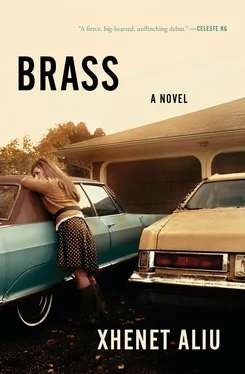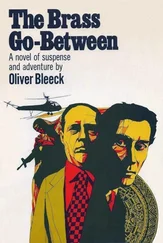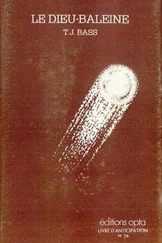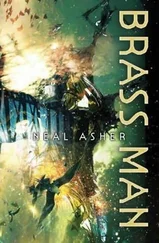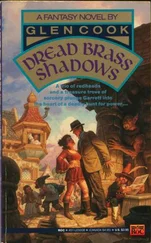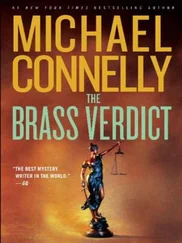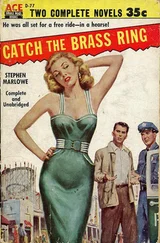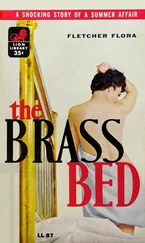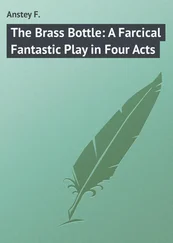“And you?”
“I’m breathing, too.”
“No, I mean, are you all right? Are you still bleeding? Do you feel ill, or in pain?”
I hadn’t noticed either until she asked, and then I felt both, immediately and entirely.
“I’m sore. I feel weak,” I said. My heart began racing, the pain and weakness so great that I worked up a sweat feeling them.
“Okay.” Yllka grabbed her purse from the kitchen table. “We are going to the hospital. Hand me the baby.”
I held her tighter. “What? No, I can’t let her go,” I said. I was keeping her safe, and she was doing the same for me. Remove her from my chest, and who knew what kind of wound would open up.
“You are weak, it is dangerous to walk. I will carry her, you will hold on to me and walk very, very slowly, one step at a time. In the car you will hold her again.”
“Maybe we should wait for Gjonni,” I said.
“Gjonni? What does he know about childbirth? I know childbirth more than every man on the block added together. We go now.”
I didn’t answer. Yllka tapped my shoulder and pulled the baby from my arms. At once I began shivering, and the baby crying. She had come out but she wasn’t meant to be separate from me yet. She wasn’t meant to be her own thing. I was freezing without her, and she was hungry and upset.
“See, she doesn’t like it. Let me have her back,” I said.
“Babies cry, they will always cry. Stand up, Elsie, we must go.”
I was crying, too. I felt the tears and hiccups finally, not sure how long they’d been there.
“Come,” Yllka said, softer this time. “It will all be fine, everything is okay, we just have to take this first step.”
“I’m scared,” I said.
“Scared is fine. You’re a mother now, you will get used to it. Come.”
I stood, and Yllka coached me down the stairs, got me down one at a time, followed so close behind me that her knees brushed against my back on the way. She was right about a lot of things, but wrong about one: we didn’t have to take just this first step. There were many more to follow, and each was harder than the last. My back slumped more with every stride across the blacktop to the car, as if my head weighed more than the rest of me combined, and my knees buckled under the weight of all of it together. Yllka braced me with one arm, held tight to the baby with the other, and guided me to the garage, and when I was safe in the car, buckled up and everything, she handed me my daughter.
—
I always thought that when life ended there’d be a procession of dead grandparents and great-aunts and -uncles to greet me. Maybe even my father, if he’d managed to crash the pearly gates, and if he was more interested in seeing me in the afterlife than he had been in the regular one. We’d stand in puffs of dry-ice smoke like Alice Cooper onstage and I’d manage to keep my white robe free from coffee stains and ring around the collar, because, after all, this was heaven and anything was possible. Instead, in this heaven, all I saw was white light, and I didn’t feel the peace that people suffered through entire lives just to get to. I felt groggy, that’s all. Maybe heaven was like smoking pot: it seemed to make other people really happy, but all it did for me was make me sleepy and too dumb to speak.
“Hey, look who’s awake,” someone said.
The white light was an overhead fluorescent lamp, and it was burning my eyes. I rolled my head over to follow the voice. I couldn’t really move yet. Mamie was standing near the bed, cradling something, but every time I blinked I saw bright light in her arms where the baby should be.
“They cleaned her up and brought her in,” Mamie said. “She’s healthy, they said. She’s sleeping as much as you.”
I closed my eyes again, but the light followed me.
“She’s beautiful,” someone else said. It was Greta, standing somewhere beside me. I couldn’t lift up my head to follow the sound of her voice. “So tiny! She’s only six pounds.”
They had the wrong baby, then. The one I had carried and borne weighed at least a hundred. I wanted to tell them to call the nurse so they could get the right one from the crib, but my mouth was too dry for my lips to come together and form the words. I sensed a headache but the pain receptors weren’t firing all the way.
“Maa,” I said instead.
“Yeah, that’s who you are now. Ma,” Mamie said. “And I’m Grandma. Twenty years away from a senior citizen discount and I’m Grandma. At least I won’t be too arthritic to run after her when she starts crawling.”
“I’m in love with her,” Greta said. “I can’t believe it. She’s perfect.”
I wanted to see for myself, but my eyes wouldn’t focus, and then they wouldn’t even stay open. Given where she came from, it wasn’t possible that she was perfect, but maybe she could be like a mutation, the kind that starts off an accident but ends up being the first of a stronger, better something.
—
The next time I opened my eyes the fog was gone. There was no mistaking the room for heaven anymore. Too many fluorescent lights and mechanized blips. Too many bright colors, Mylar balloons, bouquets of pink carnations and baby’s breath. The television was on and the door was open. The whole world could go in and out of the room as it pleased, except for me. I was tethered to the Craftmatic by a rubber tube jammed into my arm.
“She is alive after all,” Gjonni said. Yllka was holding the baby while Gjonni held a thick ugly cigar between his lips. Yllka was grasping my hand with her free one, rubbing little circles into my skin with her thumb.
“A beautiful girl, beautiful,” Gjonni said. “Who needs a son with a daughter like this?”
“Nobody needs a son,” Yllka said. “What a stupid thing to say.”
“You will have a son next time,” Gjonni said.
“There is no next time,” I said.
“Every woman says that after her first child. ‘Never again.’ The whole world would have died off if women could remember the pain of childbirth,” Gjonni said.
“I remember the pain of childbirth,” Yllka said.
“I remember,” I said. “There’s no next time. Can I hold her?”
“Of course you can,” Yllka said, but she looked reluctant to give the baby up. “Do you want to lie with Mama, Luljeta? Are you ready to eat?”
“What did you call her?” I said.
“What do you mean?” Yllka asked. She eyed the sac of fluids being funneled into my arm suspiciously, like she was wondering how much morphine, exactly, it was necessary to give someone who had just undergone the most routine of all procedures in the history of mammals.
“It’s just saline. They’re just giving me ibuprofen now. Can I hold her?” I asked again.
Yllka bobbed my daughter a few more times before she placed her into my arms. “Back to Mama, Luljeta,” she said.
“You said it again,” I said. “Luljeta.”
“Yes,” Yllka said. “Of course. It’s her name.”
“Says who? Who named her?” I asked.
Yllka looked at Gjonni, and then to the button on the wall that would call the nurse. “You named her, love,” she said. She spoke gently, as if she were still talking to the baby.
“I did? When?”
“I don’t know, Elsie, we weren’t here for that. Isn’t that the name you wanted? It’s a beautiful name. It means ‘flower of life.’ ”
“It’s what Bashkim wanted,” I said.
“Oh,” Yllka said. “Well, it’s good that he had a say, since he couldn’t be here.”
“He could have been here. He just wasn’t,” I said.
“Oh, don’t say that, Elsie. He couldn’t help it. He had to leave, you know that.”
“She’s just tired. And the drugs,” Gjonni said to Yllka, as if I weren’t in the room at all.
Читать дальше
